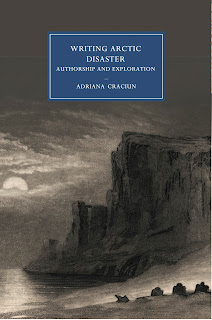Minds of Winter

Minds of Winter by Ed O'Loughlin London: riverrun, 2016 Reviewed by Russell A. Potter Over the years here at the ABR we've reviewed quite a few novels inspired by one or another aspect of the lost Arctic expedition commanded by Sir John Franklin. Since 1990, when Mordecai Richler 'broke the ice,' as it were, with Solomon Gursky Was Here , there have been at least twenty of them, and in their pages we have had just about every version of Franklin one can imagine. As Margaret Atwood whimsically prophesied in a CBC documentary in 1994, we've gone all the way from 'Franklin the dolt' to 'Franklin the mystic' -- and many other versions in-between. Franklin's seconds have not been neglected (Crozier and Fitzjames having a novel apiece), nor have his Dene and Inuit guides, the prisoners he oversaw in Van Diemen's Land, or his persevering, long-searching wife. And now we have Ed O'Loughlin's Minds of Winter -- which may well be the Franklin ...





